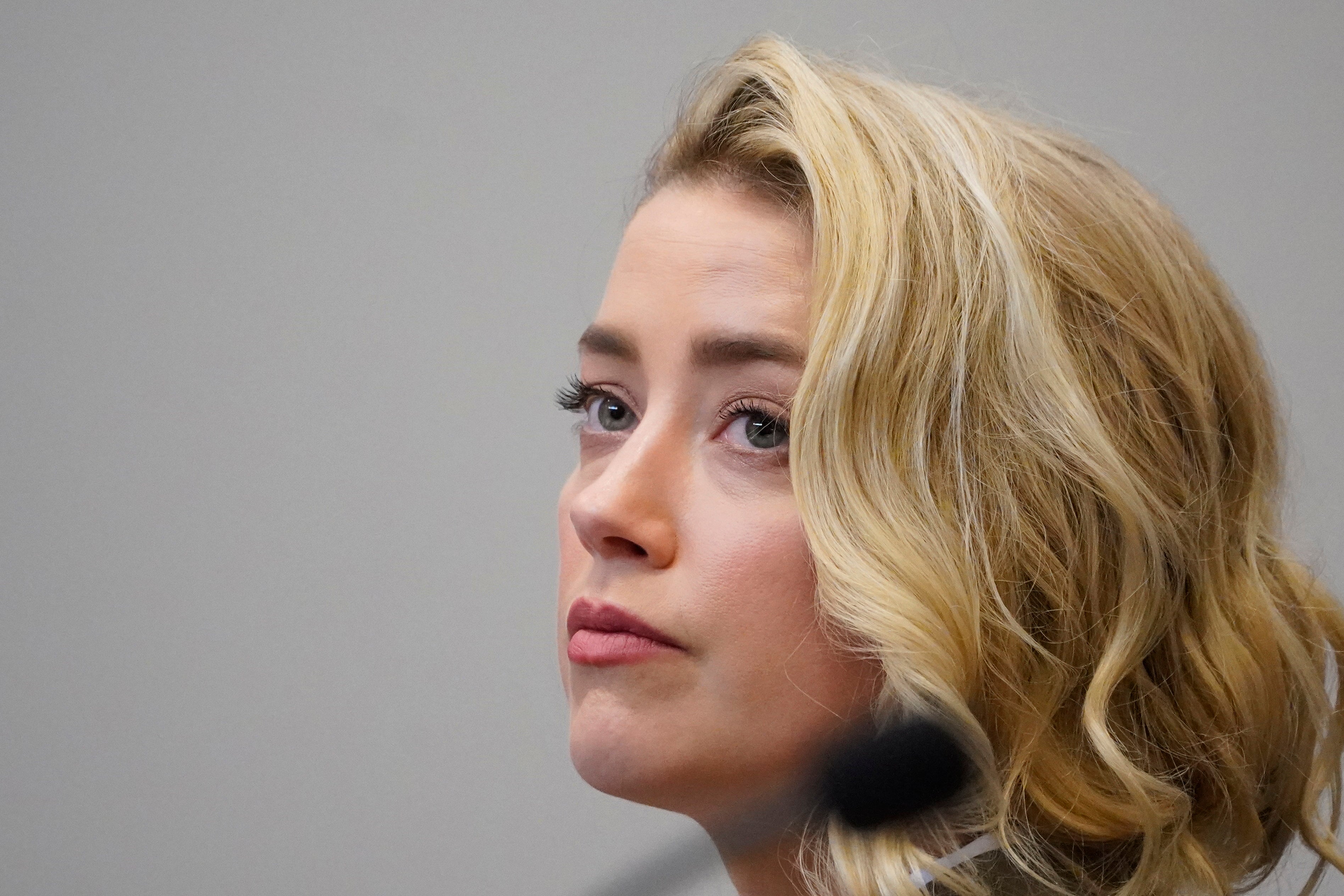What did Amber Heard’s Washington Post op-ed actually say?
Heard’s court battle with ex husband Johnny Depp was based around a 2018 article she wrote for a US newspaper. Here’s what it contained
Your support helps us to tell the story
From reproductive rights to climate change to Big Tech, The Independent is on the ground when the story is developing. Whether it's investigating the financials of Elon Musk's pro-Trump PAC or producing our latest documentary, 'The A Word', which shines a light on the American women fighting for reproductive rights, we know how important it is to parse out the facts from the messaging.
At such a critical moment in US history, we need reporters on the ground. Your donation allows us to keep sending journalists to speak to both sides of the story.
The Independent is trusted by Americans across the entire political spectrum. And unlike many other quality news outlets, we choose not to lock Americans out of our reporting and analysis with paywalls. We believe quality journalism should be available to everyone, paid for by those who can afford it.
Your support makes all the difference.The recent court case between Johnny Depp and Amber Heard centred around an opinion piece Heard wrote in 2018 for The Washington Post, titled: “I spoke up against sexual violence — and faced our culture’s wrath. That has to change.”
Depp sued ex-wife Heard for alleged defamation over the article for $50m (£40m). While Depp was not named, he claims her allegations the piece made it difficult for him to land movie roles. Heard then pursued a $100m (£80m) counterclaim.
On 1 June, the jury shared their verdict, finding that Heard had defamed Depp on all three counts. She was asked to award him $10m (£8m) in compensatory damages and $5m (£4m) in punitive damages. Heard was found to have a partial win in her case and was awarded $2m (£1.6m) in compensatory damages, but no punitive damages.
You can follow the trial live here.
But what did the original article – which remains online at The Washington Post – actually say?
The piece starts with Heard explaining that she was “exposed to abuse at a very young age”.
“I knew certain things early on, without ever having to be told. I knew that men have the power – physically, socially and financially – and that a lot of institutions support that arrangement,” wrote Heard. “I knew this long before I had the words to articulate it, and I bet you learned it young, too.”
She went on to say that she had been “harassed and sexually assaulted by the time I was of college age.” Heard added that she “kept quiet” about these incidents. “I did not expect filing complaints to bring justice,” she wrote. “And I didn’t see myself as a victim.”

However, Heard then explained that she changed her position on this in 2016, when she became “a public figure representing domestic abuse, and I felt the full force of our culture’s wrath for women who speak out.” That year Heard took part in a PSA for the #GirlGaze Project, in which she discussed her experience with domestic violence.
“It happens to so many women. When it happens in your home, behind close doors with someone you love, it’s not as straightforward,” Heard said in the video. “If a stranger did this, it would be a no brainer.”
She also wrote a piece for Porter magazine about domestic violence that same year.
In the Washington Post piece, Heard claimed that friends had told her that taking on such a public position meant she wouldn’t work again as an actor and that she would be blacklisted. Heard alleged that this turned out to be true, claiming she had been recast in one movie and dropped by a global fashion brand.
“I had the rare vantage point of seeing, in real time, how institutions protect men accused of abuse,” she wrote.
“Imagine a powerful man as a ship, like the Titanic. That ship is a huge enterprise. When it strikes an iceberg, there are a lot of people on board desperate to patch up holes – not because they believe in or even care about the ship, but because their own fates depend on the enterprise.”
Heard then wrote about the #MeToo movement, saying “we are in a transformative political moment” and discussing accusations of sexual misconduct – including allegations of assault and harassment against former US president Trump – as well as the importance of fighting sexual assault on college campuses.
In the final paragraph of the piece, Heard explained that she was writing the piece “as a woman who had to change my phone number weekly because I was getting death threats”.
“For months, I rarely left my apartment, and when I did, I was pursued by camera drones and photographers on foot, on motorcycles and in cars,” she said. “Tabloid outlets that posted pictures of me spun them in a negative light. I felt as though I was on trial in the court of public opinion – and my life and livelihood depended on myriad judgments far beyond my control.”
She concluded by saying: “I want to ensure that women who come forward to talk about violence receive more support. We are electing representatives who know how deeply we care about these issues. We can work together to demand changes to laws and rules and social norms — and to right the imbalances that have shaped our lives.”
You can read the piece in full at Washington Post. Follow live updates from the Heard vs Depp trial in The Independent.



